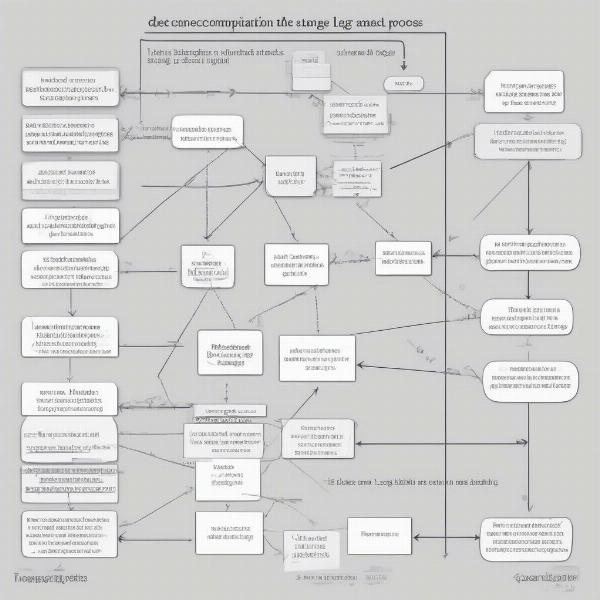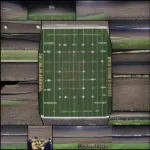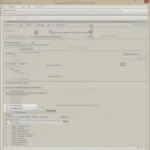Decompiling a game involves reversing the compilation process to gain access to its source code or other resources. It’s a complex topic with ethical and legal implications, and this guide will delve into the process, the reasons behind it, and the important considerations you need to keep in mind.
Understanding Game Decompilation
Why would someone want to decompile a game? There are several reasons, including modding, understanding game mechanics, fixing bugs, porting to other platforms, and even learning from the original developers’ code. However, it’s crucial to understand that decompiling a game without proper authorization can be illegal and unethical. This guide focuses on the technical process and the legitimate reasons for doing so, and strongly discourages any illegal activity.
Legal and Ethical Considerations
Before attempting to decompile any game, it’s paramount to ensure you have the legal right to do so. Copyright laws protect game code, and decompiling without permission is a violation of those rights. Acceptable reasons might include reverse engineering for interoperability or analyzing the code for security vulnerabilities with the intent to report them to the developers. Always consult with a legal professional if you are unsure about your rights.
Tools and Techniques
Several tools are commonly used for game decompilation. Disassemblers translate machine code into a more human-readable assembly language. Debuggers allow you to step through the game’s code execution, examining variables and memory locations. Hex editors allow you to directly manipulate the game’s binary files. The specific tools and techniques will vary depending on the game’s platform, engine, and programming language.
Different Game Types and Platforms
Decompiling a mobile game differs significantly from decompiling a PC game. Similarly, the process changes depending on whether the game was developed using C++, Java, or another language. Understanding the target platform and the game’s underlying architecture is essential for choosing the correct tools and applying the appropriate techniques.
 Game Decompilation Process Diagram
Game Decompilation Process Diagram
Delving into the Decompilation Process
The decompilation process typically involves several stages:
-
Identifying the game engine: Understanding the game engine used (e.g., Unity, Unreal Engine) can provide valuable insights into the game’s structure and the tools that might be effective.
-
Disassembling the game executable: This converts the machine code into assembly language, which is more readable but still requires significant expertise to interpret.
-
Analyzing the disassembled code: This involves understanding the game’s logic, data structures, and algorithms. It’s a challenging process that requires deep technical knowledge.
-
Extracting resources: This may include textures, models, sounds, and other assets used by the game.
-
Modifying the game (if applicable): If the goal is modding, this stage involves carefully altering the code or resources to achieve the desired changes.
Common Challenges
Decompiling a game is rarely a straightforward process. Obfuscation, anti-debugging techniques, and complex code structures can make analysis difficult. Furthermore, incomplete decompilation is common, meaning you may not be able to recover the full source code.
 Decompiling Tools Comparison Table
Decompiling Tools Comparison Table
Advanced Decompilation Techniques
More advanced techniques, such as dynamic analysis and code injection, can be used to gain a deeper understanding of the game’s runtime behavior. However, these techniques require a higher level of expertise and carry increased risk of causing instability or crashes.
Reverse Engineering Best Practices
When undertaking reverse engineering, meticulous documentation is crucial. Keeping detailed notes on the code structure, function calls, and data structures will be invaluable for understanding the game’s inner workings. Using version control systems can also help track changes and revert to previous states if necessary.
The Future of Game Decompilation
As game development techniques evolve, so too will the methods used for decompilation. New tools and techniques are constantly being developed, and the ethical and legal landscape surrounding game decompilation is also constantly changing.
Applying Your Knowledge
This comprehensive guide provides a solid foundation for understanding game decompilation. Remember, ethical considerations and legal boundaries should always be your primary concern. Used responsibly, decompilation can be a powerful tool for learning, modding, and improving the gaming experience. Now, let’s see how you can apply this knowledge ethically and responsibly. Share your experiences and insights in the comments below!
What is a game decompiler?
A game decompiler is a tool that attempts to reverse engineer compiled game code back into a more human-readable form.
Is it legal to decompile a game?
The legality of decompiling a game depends on the specific circumstances, including copyright law and the purpose of the decompilation. Always consult with a legal professional if you are unsure.
How can I protect my game from decompilation?
Various techniques, including code obfuscation and anti-debugging measures, can make decompilation more difficult.
What are the ethical considerations of game decompilation?
Respecting intellectual property rights and using decompilation only for legitimate purposes are key ethical considerations.
What are the benefits of decompiling a game?
Decompilation can be beneficial for modding, understanding game mechanics, fixing bugs, and learning from the code.
What are the limitations of decompilation?
Decompilation is often incomplete and can be very challenging, especially with complex or obfuscated code.
Where can I learn more about game decompilation?
Numerous online resources, forums, and communities offer further information on game decompilation techniques and tools.

